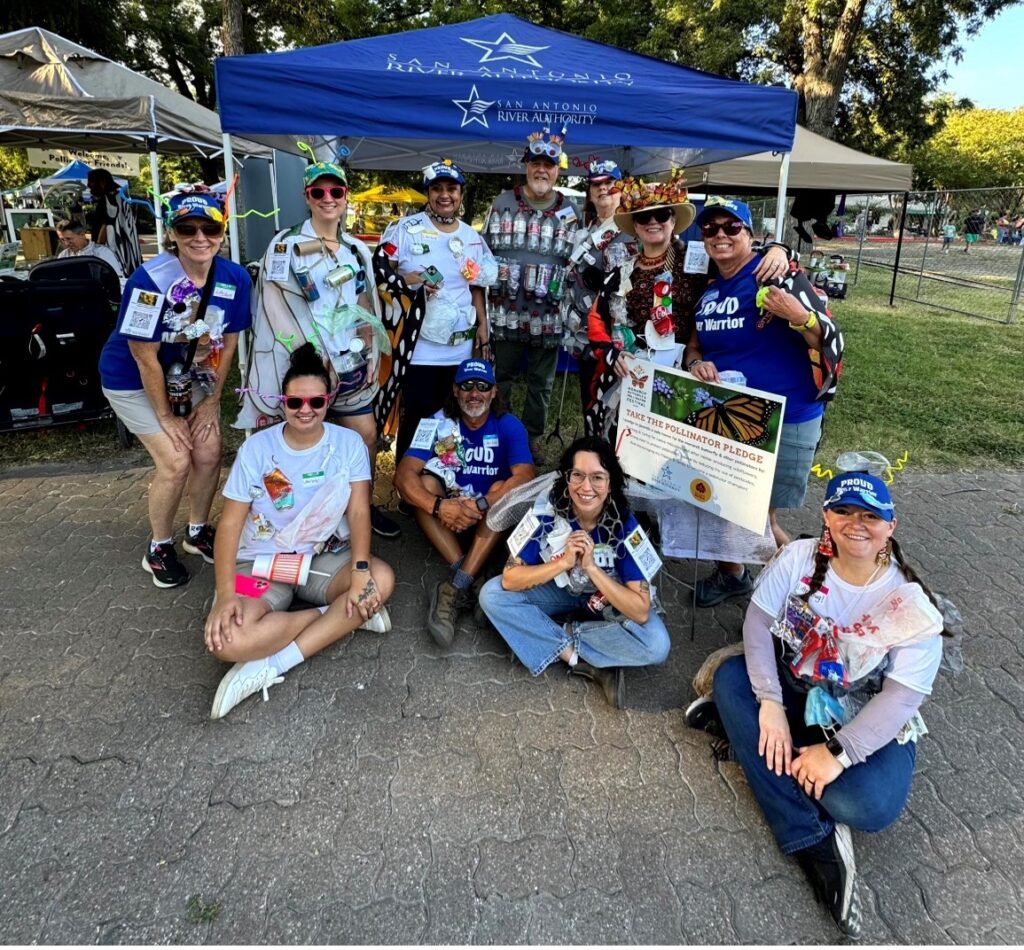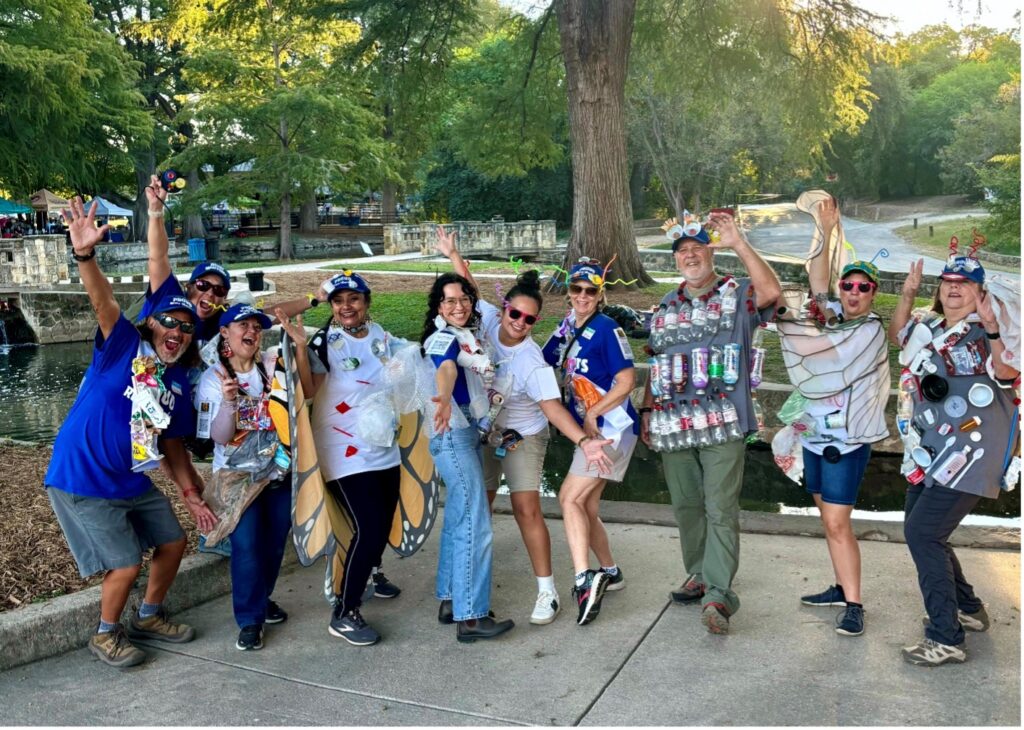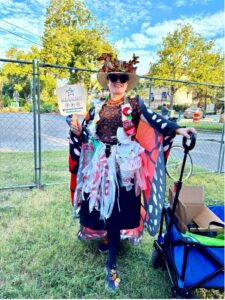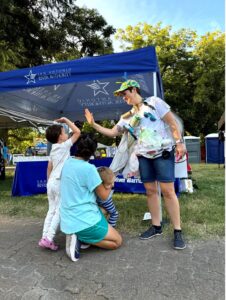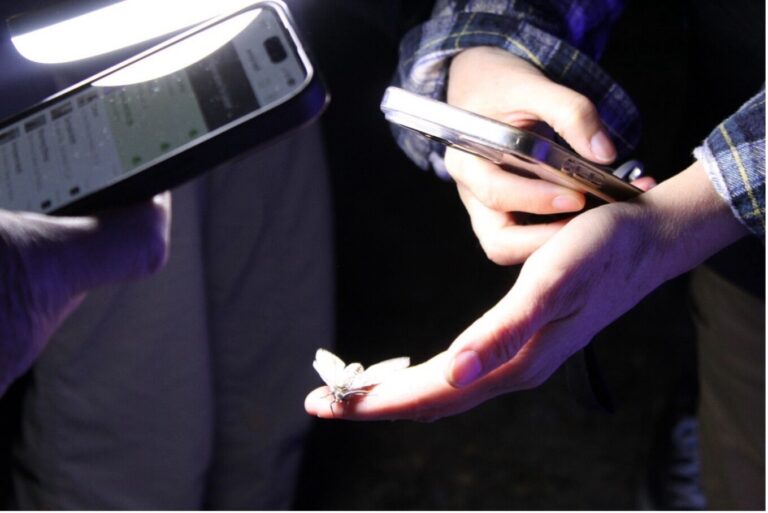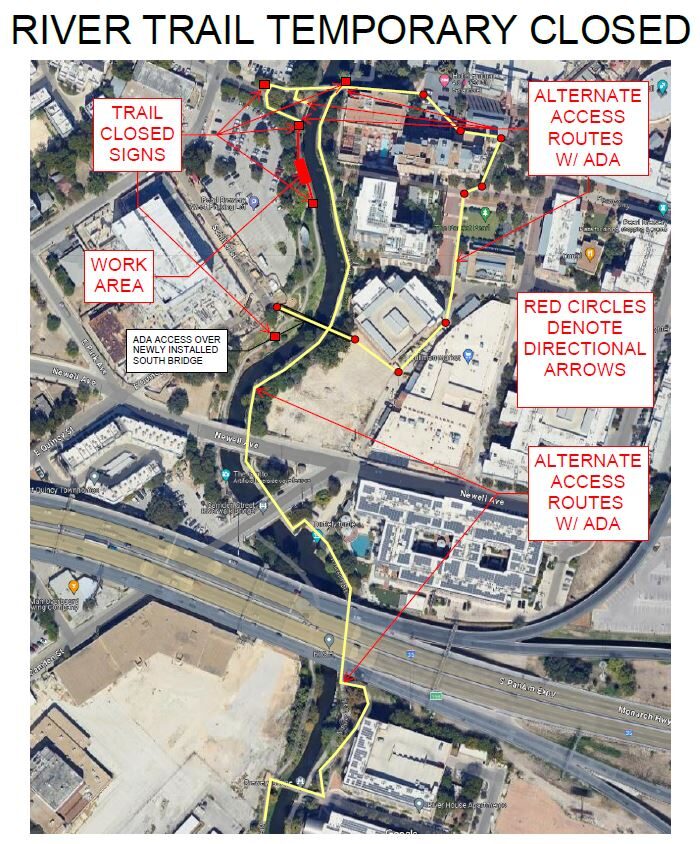If you attended the 9th Annual Monarch Butterfly and Pollinator Festival, you may have noticed some people walking around covered in trash while picking up litter. Your eyes weren’t deceiving you! The San Antonio River Authority’s (River Authority) Education and Engagement Team, along with our mighty River Warrior volunteers, transformed into Litterbugs to collect litter at the festival and spread the message about keeping our land and water clean during peak pollinator migration season (Late September through Late October).
Families were excited to take selfies with our Litterbugs after talking with them about the importance of keeping the land free from pollution. Meanwhile, many families stopped by the River Authority’s station to learn how pollinator habitats on land are connected to our freshwater resources. Over 250 children and their families took the Pollinator Pledge as they pinky-promised to help create a thriving, healthy ecosystem that protects both our precious pollinators and the freshwater that flows through our city.
The River Authority’s Education and Engagement Team often says, “Clean land equals clean water!” They regularly engage with people of all ages to emphasize the importance of clean land and water to the community of organisms that thrive in the San Antonio River ecosystem, which is part of the Central Flyway for migratory birds, and a thoroughfare for monarch butterflies and other important pollinators. The River Authority is delighted to bring this message, which is crucial to our mission of promoting safe, clean, and enjoyable waterways, to such a large audience!
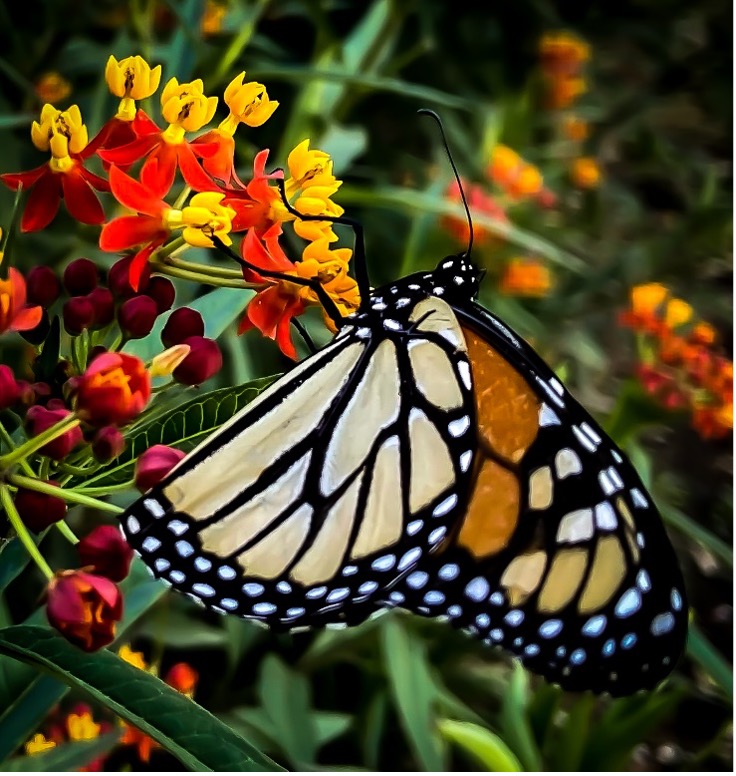
Monarch Butterfly (Danaus plexippus)
A big shout-out to Blooming with Birdie for doing an incredible job coordinating and planning this wonderful festival! We look forward to seeing y’all there next year!
____________
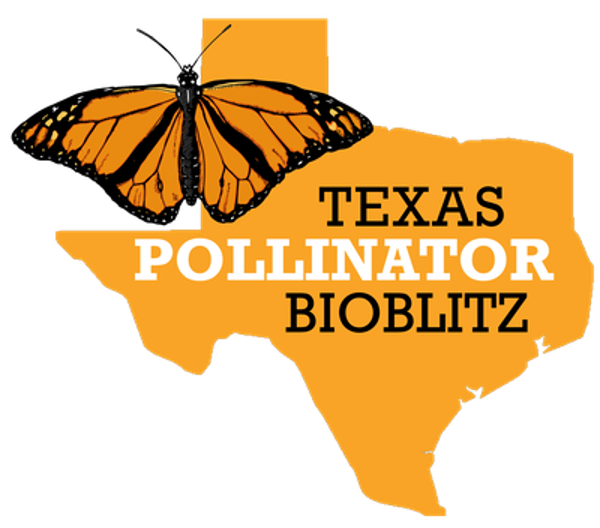
The River Authority’s River Warriors and community members also celebrated pollinators this month through citizen science! From October 11th through the 27th was the Texas Parks and Wildlife Department’s annual Texas Pollinator BioBlitz, which entailed two weeks of collecting iNaturalist observations in Texas.
The BioBlitz concluded Sunday, October 27th, with 82, 295 observations collected by over 6,661 observers! Over the course of two weeks, citizen scientists across Texas used the iNaturalist app to document photos of biodiversity specific to pollinators and pollinator plants. The results? Over 4,600 unique species were spotted in Texas this year! The most observed species this year was the Gulf Fritillary, shown below.
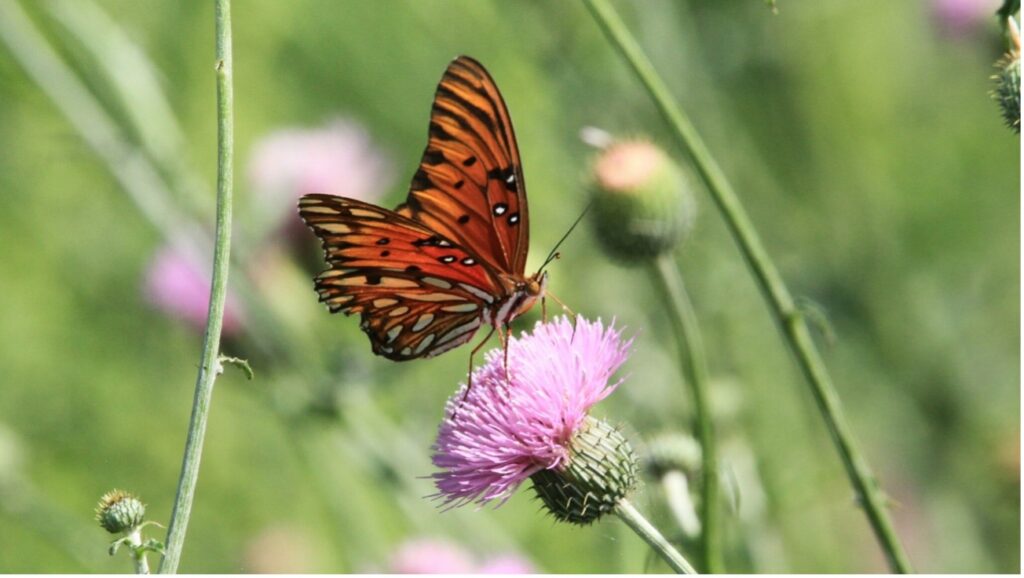
Gulf Fritillary Photo Credit: Peter Joseph (CC-BY_NC-ND)
Most people can recognize moths, butterflies, and bees as pollinators, but there are several other species of pollinating insects as well. Certain species of beetle, like the Texas Soldier Beetle, for example, are great pollinators! Wasps, despite getting a bad reputation due to their painful sting, are essential pollinators as well.
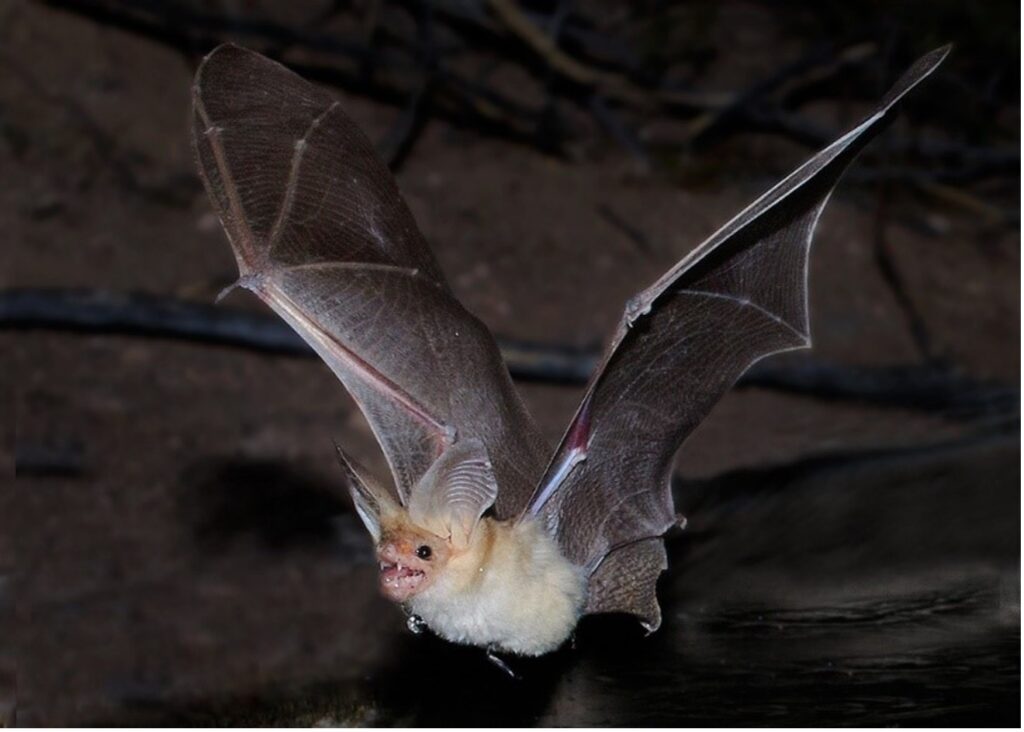
Pallid Bat (Antrozous pallidus) Photo Credit: Doug Backlund CC BY-NC 4.0
There are even pollinators in Texas that are not insects, such as hummingbirds and bats. The Pallid Bat, native to Western North America from Washington down to Central Mexico, is a very effective pollinator of cacti. Hummingbirds that are common to the San Antonio area include the Ruby-Throated Hummingbird and the Black-Chinned Hummingbird, both of which pollinate over 30 species of plants.
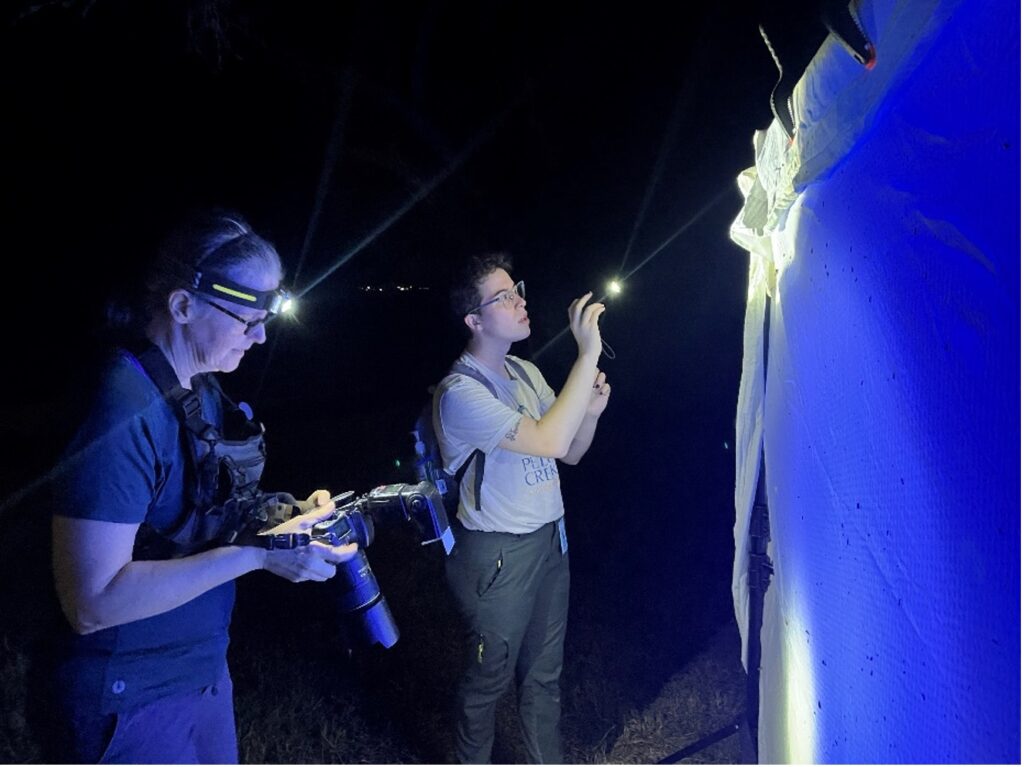
To participate in the Texas Pollinator BioBlitz, the River Warriors traveled to Trueheart Ranch Nature Park on the San Antonio’s Southside at dusk. Volunteers monitored a moth observation trap and observed native moth species such as Fatal Metalmark (Calephelis nemesis). There were also other pollinating insects present, such as Jagged Ambush Bugs (Genus Phymata) and the Long-necked Seed Bug (Myodocha serripes). We are happy to have added our observations to the 2024 Texas Pollinator Bioblitz!
_____________________________________________________________________________
If you are interested in joining in on citizen science efforts led by volunteers, join our River Warrior Volunteer Program by following the link below.
Become a River Warrior Volunteer
